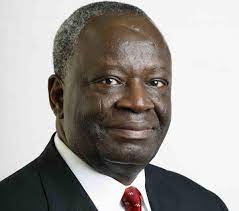Prof. Ibrahim Gambari, former Permanent Representative of Nigeria to the United Nations and Head of the UN Department of Political Affairs on Sunday called for reform towards expansion of the organisation’s membership in both permanent and non-permanent categories.
Gambari, who made the call during the virtual public lecture on preventing genocide as witnessed against the Tutsi in Rwanda, restated the need for UN reform in the context of the 30th anniversary of 1994 genocide.
The virtual lecture hosted at Covenant University, Ota, Ogun was organised by the UN Information Centre (UNIC) Nigeria, Rwanda High Commission in Nigeria and Covenant University.
Gambari said, “The membership of the UN Security Council should be reformed and democratized to reflect today’s economic demographic and political realities, and Africa should be fully represented, and taken into consideration.
“The genocide in Rwanda had unintended consequence of reawakening governments in Africa to an appreciation of their own responsibility to protect regarding civilian populations beyond their territorial borders.
“Rwanda taught Africans not to rely purely on the goodwill of the larger international community to police and resolve conflicts on their continent. The need for Africa to develop its own resources and mechanisms, to initiate effective and robust engagements, to resolve the problems of the continent has become increasingly apparent.”
The UN Secretary-General António Guterres, whose statement was read by the UNIC National Information Officer Oluseyi Soremekun, advised that people shun hatred and discrimination, and embrace unity.
“Let’s pledge to stand as one against all forms of hatred and discrimination and, ensure acts that began on April 7 1994, are never forgotten, never repeated anywhere.
“We will never forget the victims of this genocide nor the bravery and resilience of those who survived, whose courage and willingness to forgive remain light, and hope amidst dark chapter in human history.” he said.
Christophe Bazivamo, the Rwandan High Commissioner to Nigeria, called for constant vigilance to achieve desired goals on ensuring sustainable peace, saying the path to lasting peace demanded constant vigilance.
This, according to him, could be achieved through teaching young people in schools about 1994 genocide against the Tutsi, to fight hate ideologies and all forms of discrimination.
“As we renew our minds, we restate our unbreakable pledge to fight intolerance, discrimination, ethnic hatred, hate speech, genocide and denial in all their forms. Let’s together ensure the memory of the victims becomes a powerful force for good, inspiring future generations to choose peace over hate, unity over division and hope over despair,” Bazivamo said.
Prof. Abiodun Adebayo, Vice-Chancellor of Covenant University, decried conflicts that resulted in loss of life, massive displacement, destruction of infrastructure and violations of human rights to often hinder growth.
“Today’s reflection is critical because those, who do not remember their past or mind history are predestined to repeat history. We remember, therefore, the heinous crime of inhumane treatment meted out not only to the Tutsi, but the entire humanity that took place in Rwanda in 1994,” Adebayo warned.
Bishop David Oyedepo, Chancellor of the university, reiterated the need for African leaders to be awake and take responsibility against root causes of conflict moving forward.
“Leaders must be sensitive to injustice and to ensure peace and stability of the region,” he said.
(NAN)


